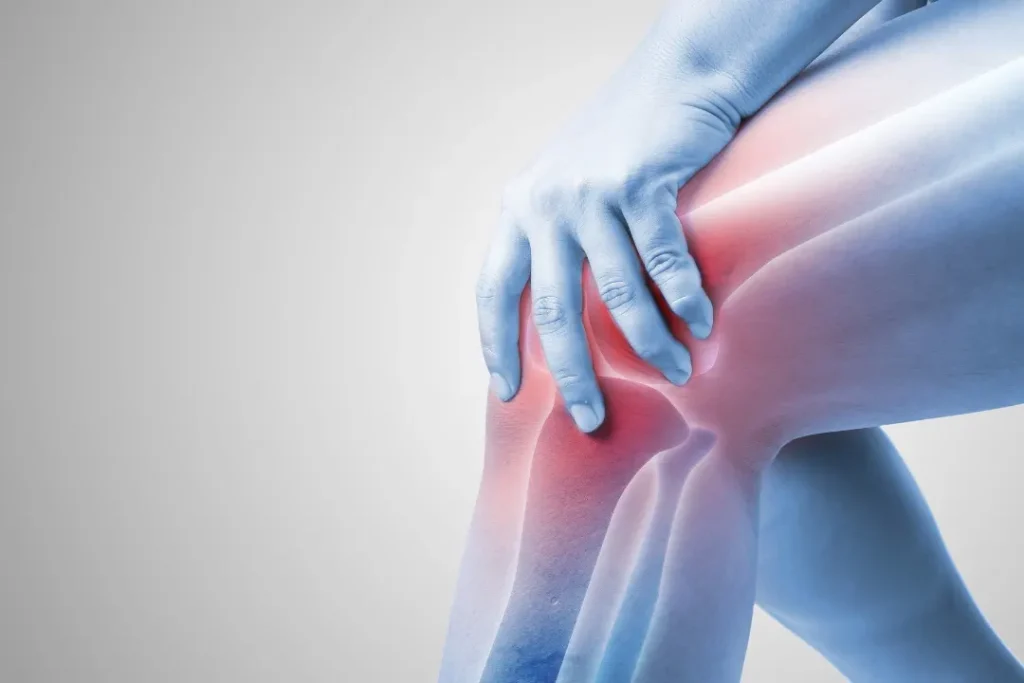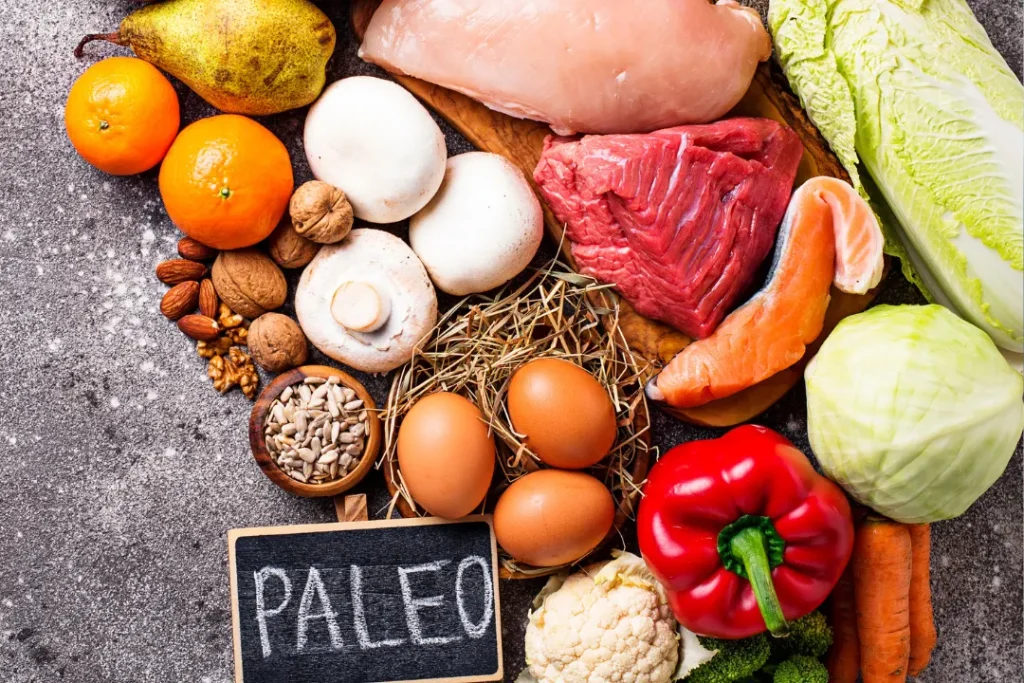If you’re a fitness enthusiast, you’re probably aware that building muscle requires more than just lifting heavy weights. That’s why many gym goers turn to supplements to help them achieve their fitness goals.
Collagen has garnered significant attention in recent years for its purported benefits in achieving radiant skin and supporting muscle growth. Collagen is often hailed as a miracle supplement for improving the appearance of skin and promoting muscle development. However, like many health and wellness trends, the truth about collagen is multifaceted. In this article, we will delve into the science behind collagen and its potential for muscle development. But first, we must explore how collagen works within the body.
You May Also Like:
Top Tips for Luscious Locks: How to Improve Hair Health
Revealing the Secret to Radiant Skin: Discovering the Amazing Omega 3 Skin Benefits
The Truth About Collagen: It’s Essential for Radiant Skin, but Is Collagen Protein Good for Building Muscle? is an original (Skin&BeautyJournal) article.
Is collagen protein good for building muscle?
Understanding collagen
Collagen is the most abundant protein in the human body, accounting for approximately one-third of its total protein content. Collagen is a crucial structural component and can be thought of as the body’s scaffolding, providing strength and support to various tissues, including skin, bones, tendons, ligaments, and muscles. Collagen is often referred to as the body’s “glue” because of its role in maintaining tissue integrity.
Collagen protein is critical for keeping your muscles strong and ensuring their proper function. Some researchers have also suggested that taking collagen may boost the synthesis of muscle proteins like creatine, as well as promote muscle growth after exercise. However, one of the main concerns regarding muscle building with collagen protein is its incomplete amino acid profile.
Amino acids, being the building blocks of protein, play a crucial role in various physiological processes, including muscle building and repair. Collagen is particularly rich in glycine, proline, and hydroxyproline—amino acids that are key for giving collagen its strength and stability. However, collagen differs from other protein sources in that it is lower in the essential amino acids leucine and cysteine. Let’s take a closer look at the non-essential amino acids in collagen protein.
Is collagen protein good for building muscle?
Non-essential amino acids
Glycine is a non-essential amino acid that is believed to be effective in boosting the health and strength of both humans and animals. Collagen is rich in glycine, which plays a role in creatine synthesis. Creatine is renowned for enhancing muscle performance and growth.
Proline is unique in its ability to contribute to the formation of collagen, which provides strength and structure to muscles, tendons, and connective tissues. This, in turn, aids in their recovery and strengthening after exercise. Proline indirectly supports the strengthening and repair of muscles.
Hydroxyproline plays a crucial role in building and maintaining muscle, albeit indirectly. When we exercise, our muscles undergo stress and can sustain tiny tears or damage. Hydroxyproline acts like a glue, holding collagen molecules together to give collagen its strength. Hydroxyproline helps ensure that collagen remains robust and can effectively repair and build muscle tissue.

Is collagen protein good for building muscle?
Collagen’s unique amino acid profile
The truth about collagen as a good protein source for building muscle is nuanced. Collagen, with its unique amino acid profile and properties, may not be the most effective protein source for muscle protein synthesis compared to other options. Notably, it does not contain tryptophan or cysteine, making it an incomplete protein. It also contains lower levels of leucine compared to whey protein.
Leucine, a branched-chain amino acid that is often referred to as the “King of Amino Acids,” plays a pivotal role in stimulating muscle protein synthesis (MPS), which is the process by which the body repairs and rebuilds muscle tissue. Leucine has also been shown to slow down the rate of muscle protein breakdown.
Tryptophan and cysteine contribute to overall protein metabolism and muscle health, but they are not the primary amino acids directly responsible for muscle protein synthesis and growth. While collagen protein is viewed as an incomplete protein for muscle building because of its amino acid profile, it still holds value in terms of overall health, joint function, and aesthetic goals. As we will discuss later in this article, a supplement that is fortified with tryptophan, cysteine, and additional amounts of leucine can offer all the benefits of a collagen protein while effectively aiding in muscle building.
Is collagen protein good for muscle building?
Collagen as a complementary protein
While there is limited evidence to support collagen as a primary protein source for muscle building, it may still have a role to play in a balanced diet or supplementation regimen aimed at optimizing health and supporting various bodily functions. Healthy muscles require strong joints and connective tissues to function optimally.
Joint and connective tissue health: Collagen’s abundance in connective tissues makes it a valuable component for maintaining joint health. Those engaged in intense resistance training may benefit from collagen supplementation to support their joints and tendons, which, in turn, can enhance their muscle-building efforts.
Tendons and ligaments: Collagen makes up a significant portion of tendons and ligaments, which connect muscles to bones and stabilize joints. When these structures are strong and flexible, they offer better support for muscle contractions and protect against strains or tears during exercise.
Cartilage: Collagen is a major component of cartilage, and maintaining healthy cartilage is essential for promoting smooth joint movement and minimizing the risk of conditions like osteoarthritis, which can hinder movement and muscle-building efforts.
Gut health and nutrient absorption: Proper digestion and nutrient absorption are critical for muscle growth and overall health. The amino acid glycine aids in digestion and reduces inflammation in the gut lining. A healthy gut is essential for the absorption of nutrients required for building muscle.
Bone health: Collagen is a component of bone tissue, contributing to bone density and strength. Strong bones are essential for supporting muscles and preventing injuries.
Collagen plays a pivotal role in maintaining the health of these tissues, including tendons, ligaments, and cartilage. When these structures are in good working condition, they can better withstand the stress placed on them during workouts, reducing the risk of injury.

Is collagen protein good for building muscle post-workout?
Collagen protein can play a supportive role in muscle building following a workout, although it may not be as effective as traditional protein sources at directly stimulating muscle protein synthesis. Its unique amino acid profile, which is rich in glycine and proline, can help reduce exercise-induced inflammation, support joint health, and contribute to the overall recovery process.
During strenuous exercise, glycine, proline, and hydroxyproline—amino acids that safeguard your muscles—can break down and become damaged. This can trigger a cascade of issues, including muscle protein breakdown and inflammation.
Consuming collagen or collagen supplements as part of your post-workout routine can boost the levels of these amino acids and more effectively support your recovery. This, in turn, provides your joints, bones, and muscles with the support they need to repair after a workout.
Is collagen protein good for building muscle at any age?
As we age, collagen production naturally declines, leading to joint stiffness and muscle loss. Protein sources like whey, casein, and lean meats offer a more complete amino acid profile, including higher levels of leucine, which is crucial for muscle protein synthesis. Although collagen is an incomplete protein, it does offer potential benefits for muscle health, especially for older individuals or those dealing with joint issues.
Supplementing with collagen may help improve joint function. When joints are functioning better, individuals can engage in more effective resistance training, indirectly supporting muscle development. Collagen supplementation may be particularly beneficial for older adults who are concerned about age-related muscle loss and joint health. It can complement their protein intake and support overall well-being.
Additionally, collagen protein is an excellent option for individuals with specific dietary preferences or restrictions. It’s naturally free of dairy, gluten, and soy, making it suitable for those with allergies or intolerances. Additionally, collagen is often sourced from animal by-products, aligning with diets such as paleo and keto.
Research suggests that collagen supplementation, particularly in combination with resistance training, may have a positive impact on muscle mass and strength, especially for those dealing with age-related muscle loss. Furthermore, collagen may help reduce exercise-induced muscle damage and inflammation, potentially aiding in post-workout recovery.
It’s important to keep in mind that not all collagen protein supplements are equal in quality. In the next section, we’ll look at Frog Fuel Power Protein, one of the best and most reputable collagen protein supplements available on the market.

Is collagen protein good for building muscle?
Frog Fuel Power Protein may hold the answer
Frog Fuel Power Protein is a liquid collagen protein boasting a comprehensive amino acid profile encompassing 22 amino acids. Unlike other collagen peptide and hydrolyzed collagen products, Frog Fuel is fortified with additional amino acids glutamine, histidine, methionine, threonine, taurine, tryptophan, and cysteine to make it a complete protein. Frog Fuel Power Protein takes it a step further with a unique feature—it’s a liquid nano-hydrolyzed collagen protein broken down to a unit about half the size of a pore in the stomach. This “nano-hydrolyzed” quality makes it possible for 100% of the collagen to be digested within 15 minutes.
Collagen protein is normally low on the muscle-building amino acid leucine. The International Society of Sports Nutrition recommends that a quality protein supplement should contain between 700 and 3,000 mg of leucine per serving. Frog Fuel Power Protein impressively delivers 3,300 mg of leucine per serving, along with a balanced array of essential amino acids, including 1500 mg of isoleucine and 2700 mg of valine. Moreover, Frog Fuel’s formula is fortified with muscle-building amino acids to help users power through their workouts and recover faster.
Each 1oz liquid serving packet provides 15 grams of pure protein. The recommendation is to take one shot immediately after physical activity or workout for rapid recovery. Frog Fuel has a 5 out of 5 customer satisfaction rating based on more than 5200 reviews on the Frog Fuel website. Many customers have praised the convenience of the single-serving packets; others have reported reduced cravings and, notably, rapid recovery following an intense workout. Incorporating Frog Fuel Power Protein into your diet is a straightforward and convenient choice.
Is collagen protein good for building muscle?
Final word
While collagen protein may not serve as the primary protein source for muscle building, it offers several other benefits that can complement a balanced diet geared toward muscle growth and overall health. Its unique amino acid profile supports the health of joint and connective tissue and has positive effects on gut health and nutrient absorption while also playing an important role in tissue repair and bone health.
The pursuit of a strong, lean physique has led many individuals to explore various dietary supplements and protein sources to optimize their muscle-building efforts.
However, given that collagen is not a complete protein, the best option may be a high-quality collagen protein supplement that is fortified with the essential amino acids to make it a complete protein. You may also want to look for a supplement with an increased level of leucine to boost its muscle-building potential, making it a valuable addition to your health and fitness regimen.
A fortified collagen protein supplement offers a broader spectrum of amino acids, which can enhance your body’s ability to recover, repair, and grow muscle tissue. Ultimately, this helps you achieve your fitness goals. Whether you’re an athlete seeking peak performance or an individual looking to maintain muscle mass and function as you age, you should now have a better understanding of collagen protein, including its benefits and limitations for muscle building. This knowledge empowers you to make more informed decisions on how to harness collagen protein for muscle growth, health, and overall well-being.

For further reading:
Forbes: Here’s why wellness brands are investing into collagen
Good Housekeeping: Do collagen supplements work? Experts explain the potential benefits
Very Well Health: Why your collagen depletes with age
CNN: Is ingestible collagen the fountain of youth? Maybe.
NBC News: Everything you need to know about protein
Important Note: The information contained in this article is for general informational purposes only, and should not be construed as health or medical advice, nor is it intended to diagnose, prevent, treat, or cure any disease or health condition. Before embarking on any diet, fitness regimen, or program of nutritional supplementation, it is advisable to consult your healthcare professional in order to determine its safety and probable efficacy in terms of your individual state of health.
Regarding Nutritional Supplements Or Other Non-Prescription Health Products: If any nutritional supplements or other non-prescription health products are mentioned in the foregoing article, any claims or statements made about them have not been evaluated by the U.S. Food and Drug Administration, and such nutritional supplements or other health products are not intended to diagnose, treat, cure, or prevent any disease.